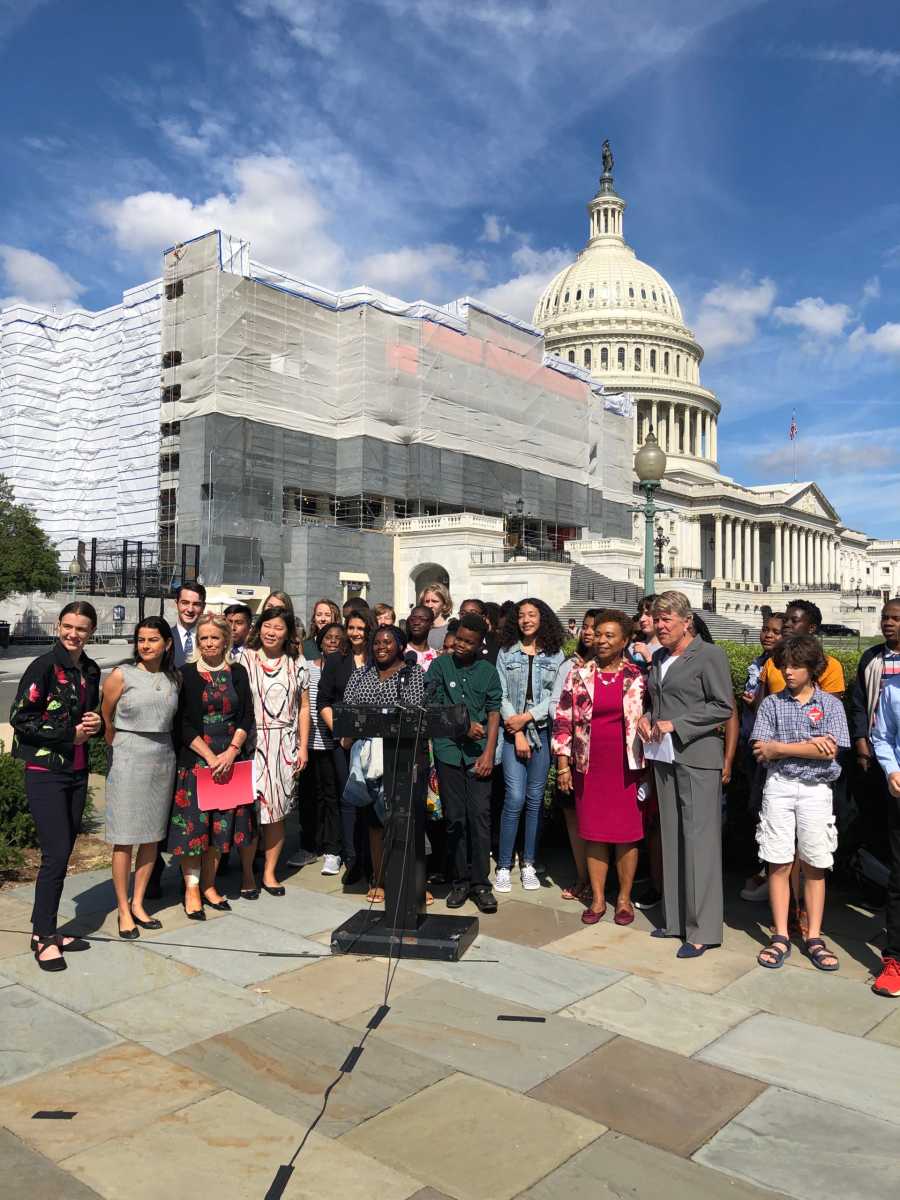As millions of youths in 150 countries march in a climate change strike on Friday, U.S. Rep. Grace Meng (D-Flushing) joined young activists in Capitol Hill to announce her support of a climate change education bill.
“The magnitude of climate change will continue to grow and challenge how we live,” said Meng. “That is why it is imperative that we bring the issue into our schools.”
As a parent, Meng wants to ensure they inherit a livable world.
“By teaching them about climate change, students will understand the gravity of the situation, and realize that they can be part of the solution,” said Meng. “As the mother of two young boys, I want to do everything I can to protect them, and bringing the conversation of climate change into our schools will go a long way towards safeguarding the future of all of America’s children.”
Introducing the bill was fellow congresswoman U.S. Rep. Barbara Lee (D-CA).
“More than 25 percent of America’s students are taking action to urge us to address climate change,” said Barbara Lee.
From preschool to high school, there are approximately 56.6 million students attending school this fall, according to the National Center for Education Statistics.
“To meaningful act upon climate change and eliminate climate change,” said Lee. “Young people need education on its causes, its consequences and possible solutions. That is why I am introducing a resolution to introduce climate change education in American schools.”
A Washington Post-Kaiser Family Foundation Climate Change Survey that was conducted over the summer found only two out of 10 teens fully understood what climate change was and ways they could mitigate their role in it.
“Students do not know enough about climate change,” said Lee. “We need to teach every young person the human impacts of climate change and how to address our warming climate before it is too late.”
Global temperatures are rising and the last five years were the hottest years on record according to the National Oceanic and Atmospheric Administration, said Meng on Capitol Hill.
“Hotter temperatures means stronger storms and more intense rain events that challenge how we live,” said Meng. “That is why it is imperative to bring the issue of climate change into our schools and onto our curriculums to help our students understand and lead this charge for a more sustainable future.”
Meng hopes that climate change literacy will help usher in a generation of leaders who could help solve environmental problems.
“Our kids are our future scientists, engineers, teachers, and innovators who will guide our nation,” said the congresswoman.






